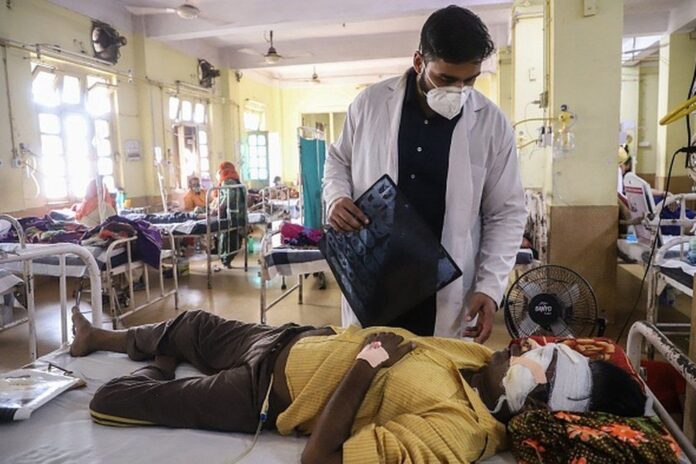More than 4,300 people have died of the deadly “black fungus” in India in a growing epidemic that mainly affects Covid-19 patients.
India has reported 45,374 cases of this rare and dangerous infection, called mucormycosis, Health Minister Mansukh Mandaviya has said.
It affects the nose, eyes and sometimes the brain, and usually strikes 12-18 days after recovery from Covid.
Nearly half of those infected are still receiving treatment.
Doctors say the fungus has a link with the steroids used to treat Covid, and diabetics are at particular risk.
Steroids reduce inflammation in the lungs for Covid-19 and appear to help stop some of the damage that can happen when the body’s immune system goes into overdrive to fight off the coronavirus.
- South Africa calls up army reserves to halt unrest
- Wildfires rage as US West grapples with heat wave, drought
But they also reduce immunity and push up blood sugar levels in both diabetics and non-diabetic Covid-19 patients.
It’s thought that this drop in immunity could be triggering cases of mucormycosis in diabetics or severely immunocompromised individuals, such as cancer patients or people with HIV/Aids.
An anti-fungal injection is the only drug effective against the disease, doctors say.
The two worst-affected states are Maharashtra and Gujarat, where 1,785 people have died from mucormycosis.
Dr Raghuraj Hegde, a Bangalore-based eye surgeon who has treated a number of mucormycosis patients, told the BBC that there had been “massive undercounting of both cases and deaths” from the disease.
“Typically, deaths in mucormycosis occur weeks to months after getting the disease. Our present systems are not good to capture that data,” he said.
Cases were being also undercounted because diagnosis was difficult in smaller hospitals and in rural areas and only a fraction of the cases reached hospitals in big cities, he added.
Doctors said that many patients had died from the disease even before reaching a hospital and a number of treated and recovered patients appeared to be suffering from a relapse.
“We are seeing patients who were treated aggressively for the disease and discharged from hospitals returning with a recurrent infection which is manifesting in wider spread of the disease in the eye or brain,” Dr Akshay Nair, a Mumbai-based eye surgeon, told the BBC.
SOURCE: BBC NEWS





